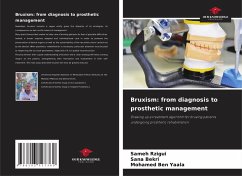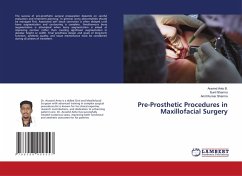Nowadays, bruxism remains a vague entity given the disparity of its etiologies, its consequences as well as the means of management.Many practitioners feel unable to take care of bruxing patients for fear of possible difficulties. Indeed, a bruxer requires adapted and individualized care in order to promote the preservation of dental organs as well as the sustainability of the reconstructions carried out by the dentist. When prosthetic rehabilitation is necessary, particular attention must be paid to respecting the occlusal parameters, especially if it is a global reconstruction.The practitioner with a good understanding of bruxism and a clear strategy will have a strong impact on the patient, strengthening their motivation and involvement in their self-treatment. The risks associated with bruxism will thus be greatly reduced.








